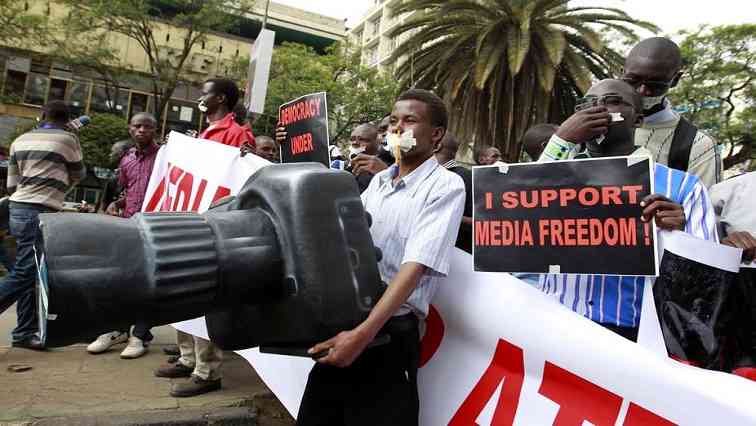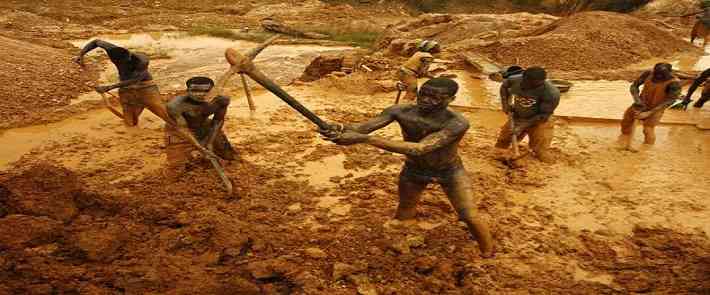
THE theme for this year’s World Press Freedom Day is “Shaping a future of rights: Freedom of expression as a driver for all other human rights”.
This places the media as a vital cog in civil liberties. That’s why we are the fourth estate after the legislature, judiciary and executive arms of the state.
As the globe marks press freedom on May 3, it is important to reflect on the state of the media in Zimbabwe. Over the years, Zimbabwe has faced numerous challenges in terms of press freedom. It is crucial for us to recognise the progress made so far, while acknowledging the work that still needs to be done and retrogressive steps taken by government.
In recent years, Zimbabwe has made some positive strides towards promoting press freedom. In 2020, the government amended media laws, including repealing the draconian Access to Information and Protection of Privacy Act (Aippa) and the enactment of the Freedom of Information Act.
These changes were celebrated by the media fraternity as they represented a significant shift towards enhancing transparency and accountability in government operations.
However, while we welcome the positive developments, the state seems bent on putting in place retrogressive measures in enjoyment of social, economic and political rights through the enactment of laws like the Private Voluntary Organisations Amendment Bill and plans to amend the Criminal Law Codification and Reform Act.
Once the amendments become law, it will be illegal to “wilfully injuring the sovereignty or national interest of Zimbabwe”. This criminalises engagement with foreign embassies without government approval.
The Data Protection Act in 2021, which established the Cybersecurity and Monitoring of Interception of Communications Centre, housed in the Office of the President and Cabinet, is such other “bad” law that were enacted as we popped champagne after the repeal of Aippa. Zimbabwean journalists continue to encounter numerous challenges in line of duty. One of the most significant issues they face is the harassment, arrest and detention of journalists who report on sensitive issues such as corruption.
- Mbavara eyes to resurrect Matavire’s music legacy
- Zim exiles panic over SA permits
- Zim exiles panic over SA permits
- Social media platforms should act on hate speech
Keep Reading
This has been a long-standing issue in Zimbabwe. It has created an atmosphere of fear of arrests or harassment for reporting on certain topics. It is imperative that journalists are protected. After all it’s a right guaranteed in the Constitution.
In 2018, the Media Institute of Southern Africa (Misa) recorded 32 violations on journalists. The figure increased to 36 in 2022 as the country headed for the harmonised elections to be held in July or August this year. This is a worrying trend.
Another critical issue facing the media in Zimbabwe is the lack of diversity in ownership and management of media outlets.
This has resulted in limited access to information and opinions, which has a negative impact on the ability of the media to hold those in power accountable.
Furthermore, economic challenges have a significant impact on the media. Many media outlets struggle to remain financially viable, which has led to job losses, salary cuts and a decline in the quality of journalism.
As we celebrate World Press Freedom Day, it is crucial for the Zimbabwean government to take concrete steps towards promoting and protecting press freedom.
This includes ensuring that journalists are not harassed or intimidated in their line of work, promoting media diversity and ownership and providing support to media outlets to ensure their financial viability. It is essential to ensure that data is affordable and internet is accessible to the majority of Zimbabweans as this allows access to information.
Summarily, press freedom is essential for nurturing democracy, transparency and accountability. It is crucial for the Zimbabwean government to take concrete steps towards promoting and protecting press freedom and freedom of expression. Similarly, the media fraternity must continue to play its role in promoting transparency, accountability and providing accurate and informative news.
Ultimately, press freedom is essential for the development of a vibrant and democratic society, and it is the responsibility of all stakeholders to work towards achieving it.
Journalists have a crucial role to play in informing the public and holding those in power accountable. It is, therefore, crucial for journalists to continue to report on sensitive issues fearlessly and without hesitation of retaliation.






